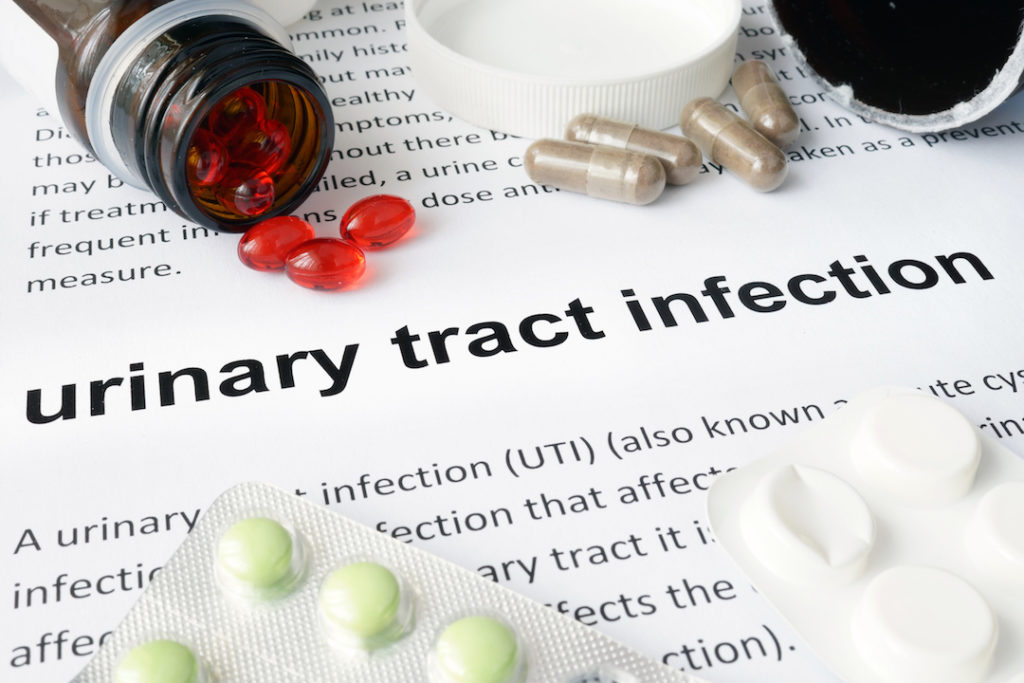Is It A Urinary Tract Infection Or Something More?
September 18 2018
Chances are you’ve likely experienced that burning sensation before. That uncomfortable sensation that is often coupled with an urgency to urinate even when your bladder is empty. A UTI, or urinary tract infection, is an infection of the urinary tract or bladder where often changes in the pH or poor hygiene practices have allowed for the perfect breeding ground for bacteria to grow. Though easily remedied with antibiotics, if left untreated a simple infection could easily travel up to the kidneys and evolve into a larger issue. In addition, sometimes that familiar pain may be something more troubling altogether.
Here’s what you should know, how to treat it, and when to question if it’s something more serious.
Is It UTI?
Women are often much more likely to experience a UTI than men due to the simple fact that women have shorter urethras where bacteria can more easily enter and take root. Hygiene and sexual practices, as well as location of the urethra in relation to the anus, are all possible factors.
Once bacteria is introduced a UTI will likely produce some of the following symptoms, depending on the severity:
- Burning sensation upon urination
- Frequent urge to urinate even when bladder is empty
- Pain, pressure, or tenderness in the abdomen or lower back
- Changes to smell or color of urine, or blood in the urine
- Low energy
- Fever (may indicate the infection has spread to the kidneys)
How To Test And Treat A UTI
A UTI should be tested and confirmed by a doctor. This can be done through a simple urine sample to determine if there is bacteria in the urine. Doctors will most likely prescribe a broad spectrum antibiotic to kill off the harmful bacteria. It is important to treat a UTI earlier rather than later to prevent the spread and severity of infection.
In addition to traditional, routine treatment methods, there are holistic lifestyle and herbal remedy approaches that may be used in conjunction with antibiotics to restore balance.
- Water – Drink plenty of water to promote hydration and flushing out of bacteria in the bladder.
- Oregano Oil – Oregano oil is a natural and potent antibacterial and antiviral. If symptoms are extremely mild, oregano oil may be strong enough to clear an infection. The added benefit of oregano oil is that there is no risk of antibiotic resistance and it has no harmful side effects.
- Loose Fitting Clothing – Synthetic fabric holds moisture and does not breath as well as natural fibers. Try to wear all natural cotton and loose fitting clothes that encourage air flow.
- Probiotics – Probiotics are essential, especially if your doctor prescribes antibiotics, to restore beneficial bacteria cultures in the gut and improve overall immunity.
- Cranberry – Some studies report that certain compounds in cranberries may actually help to relieve symptoms of a UTI as well as reduce the occurrence of them. There is still some debate however in the true effectiveness of this traditional herbal remedy.
- D-mannose – D-mannose is a kind of glucose that helps to prevent certain strains of bacteria from adhering to the urinary tract lining. It is mostly used as a preventative, however there are certain supplemental products that use D-mannose to help clear infections as well.
- Vitamin C – Vitamin C not oil works to improve immunity, it helps to inhibit the growth of E. coli by making the urine more acidic. It can also be used as a preventative.
- Hygiene – Certain hygiene practices may prevent the occurrence of UTIs. Wiping from front to back, and urinating before and after sexual activity may help to rid any bacteria that has migrated into the urinary tract.
Could it be something else?
IC, or Interstitial Cystitis (CI) causes extremely similar symptoms and it may be hard to tell the difference between a UTI and CI. If you experience chronic UTIs or antibiotics are not resolving the issue, check in with your doctor. In most cases, CI is caused by chronic inflammation and a urine sample will not show signs of bacteria, indicating CI versus a UTI. Antibiotics are not effective against CI and there is no “cure”, however a lifestyle approach to reduce overall inflammation along with remedies for pain management may be recommended.
In some cases bladder irritation and infections have been linked to cancer of the bladder. There is some controversy, however, as to whether UTIs are linked to an increased or decreased risk of cancer as clinical trials have resulted in reports of both.
Article originally appeared and sourced from Food Matters.
—
For medical consultations, call to schedule an appointment with us at 03 5229 5192 (Myers Street Family Medical Practice), 03 5241 6129 (The Cottage Medical Centre), 03 5264 8838 (Torquay Medical Health & Wellness Clinic). For Corporate Care Program, visit Workplace Health & Safety Victoria.
